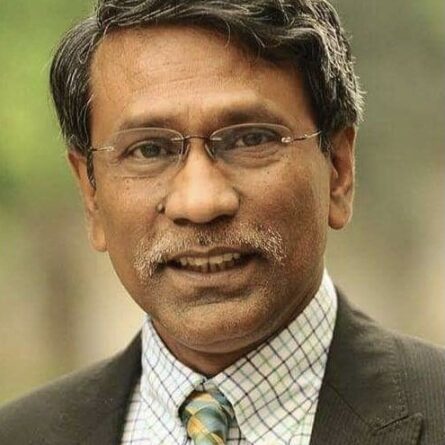The Constitution Reform Commission will seek proposals from political parties and other stakeholders and then decide whether the constitution should be amended or rewritten.
“We will reach out to political parties, and request them to submit written opinions and specific proposals. We will not sit with them, but we will discuss with other stakeholders regarding reforms,” Prof Ali Riaz, chief of the Constitution Reform Commission, said this during its first formal press conference held at the LD Hall of the Jatiya Sangsad Bhaban yesterday afternoon.
The government, not the commission, will talk with political parties about their proposals, he added.
Prof Riaz said, “Every written proposal and opinion submitted by political parties and other stakeholders will sincerely be reviewed by the commission, and efforts will be made to reflect those in the commission’s recommendations as much as possible.”
Later, the commission will consult with experts, lawyers, representatives of civil society organisations, prominent civil society figures, representatives of professional organisations, young thinkers, and representatives of cultural organisations and seek written proposals from them.
The commission will also hold discussions with representatives of the Anti-discrimination Student Movement and the Jatiya Nagorik Committee.
Responding to journalists’ questions whether the constitution will be amended or rewritten, Prof Riaz said, “We cannot say yet what kind of proposals we will receive … We will decide whether the constitution will be amended or rewritten after getting the proposals.”
He said the commission will begin discussions with stakeholders next week.
Besides, the commission will gather views and proposals of the people through its website, which will be functional from tomorrow.
He added that the website address will be shared with the media through a press release.
When asked whether the current government or the next elected government will implement the commission’s proposals, Special Assistant to Chief Adviser, Mahfuj Alam, said the announcement of the one-point demand during the July-August movement nullified the previous political settlements.
“I’m not speaking as a member of the government or the Constitution Reform Commission regarding how the proposals will be implemented. It is a political decision. However, as a student representative, I can say that these will definitely be implementable by the current government.”
In a written statement, Prof Riaz said the Constitution Reform Commission has decided not to involve in the reform process the individuals, organisations, agencies, institutions, or parties who were against the July-August uprising and supported the killings and repression, or helped legitimise the “fascist actions”.
He said the commission is responsible for reviewing and evaluating the constitution to establish a representative and effective democracy to empower the people.
He also outlined seven objectives of constitutional reforms.
These include the establishment of a democratic state free from discrimination, based on the ideals of the Liberation War, which promised equality, dignity, and social justice; reflection of the people’s aspiration for a participatory democratic state as revealed by the student-led mass uprising in 2024; and ensuring people’s effective participation at all levels of politics and governance.
The other objectives are preventing the emergence of any future fascist regime; ensuring separation of three branches of the state — executive, legislative, and judicial — to maintain a balance of power; decentralising the state power and adequately empowering institutions; and ensuring the effective independence of autonomous, constitutional, and statutory organisations.
All the commission members were present at yesterday’s press conference.
Daily Star

